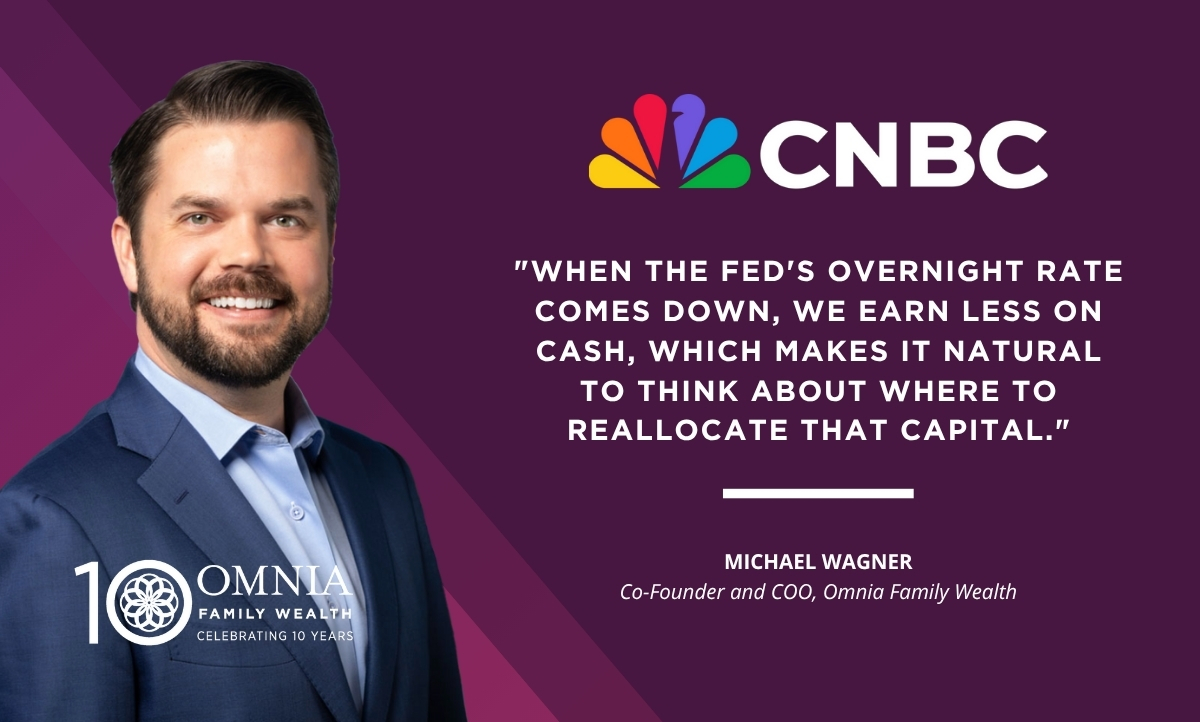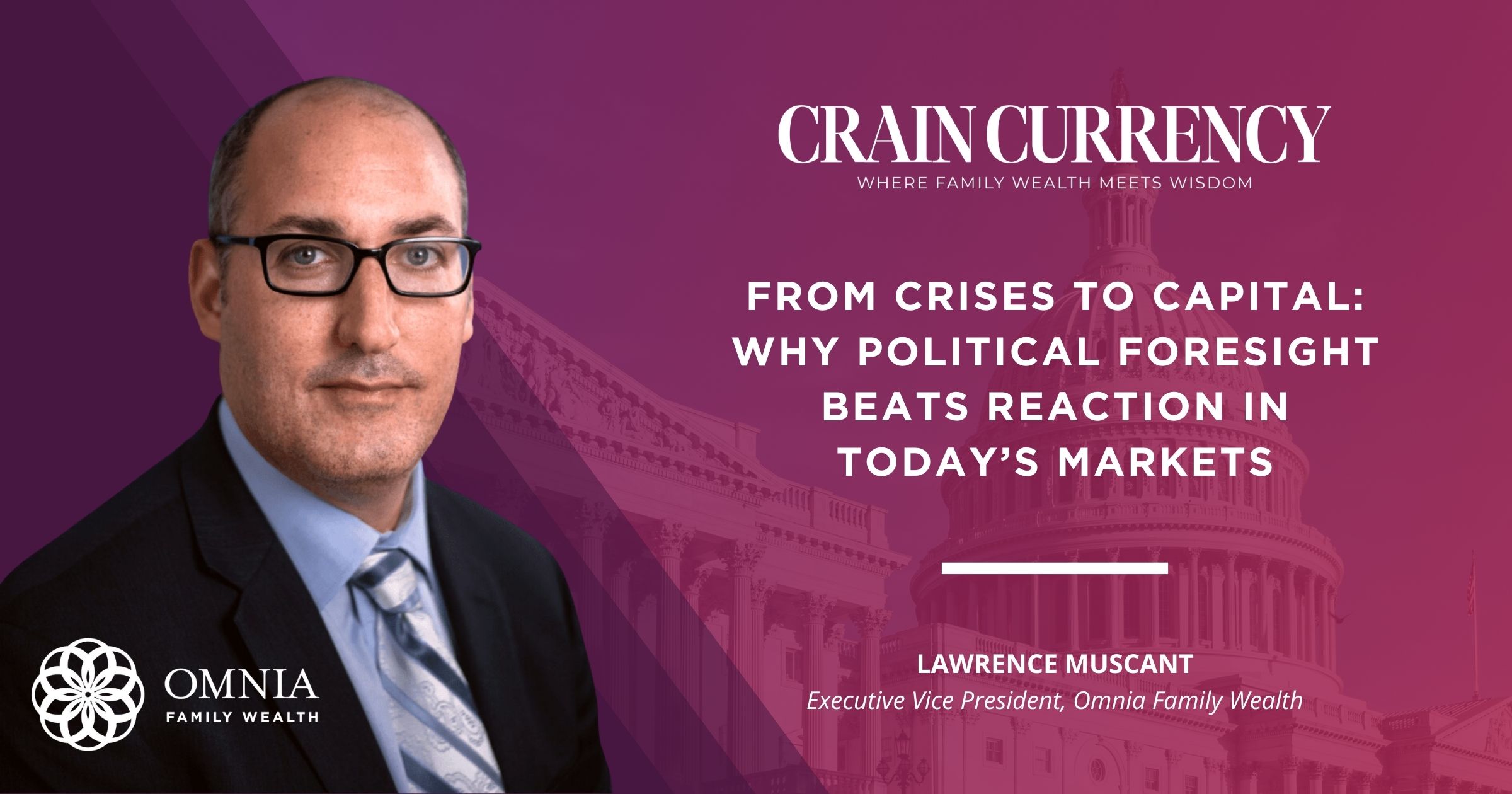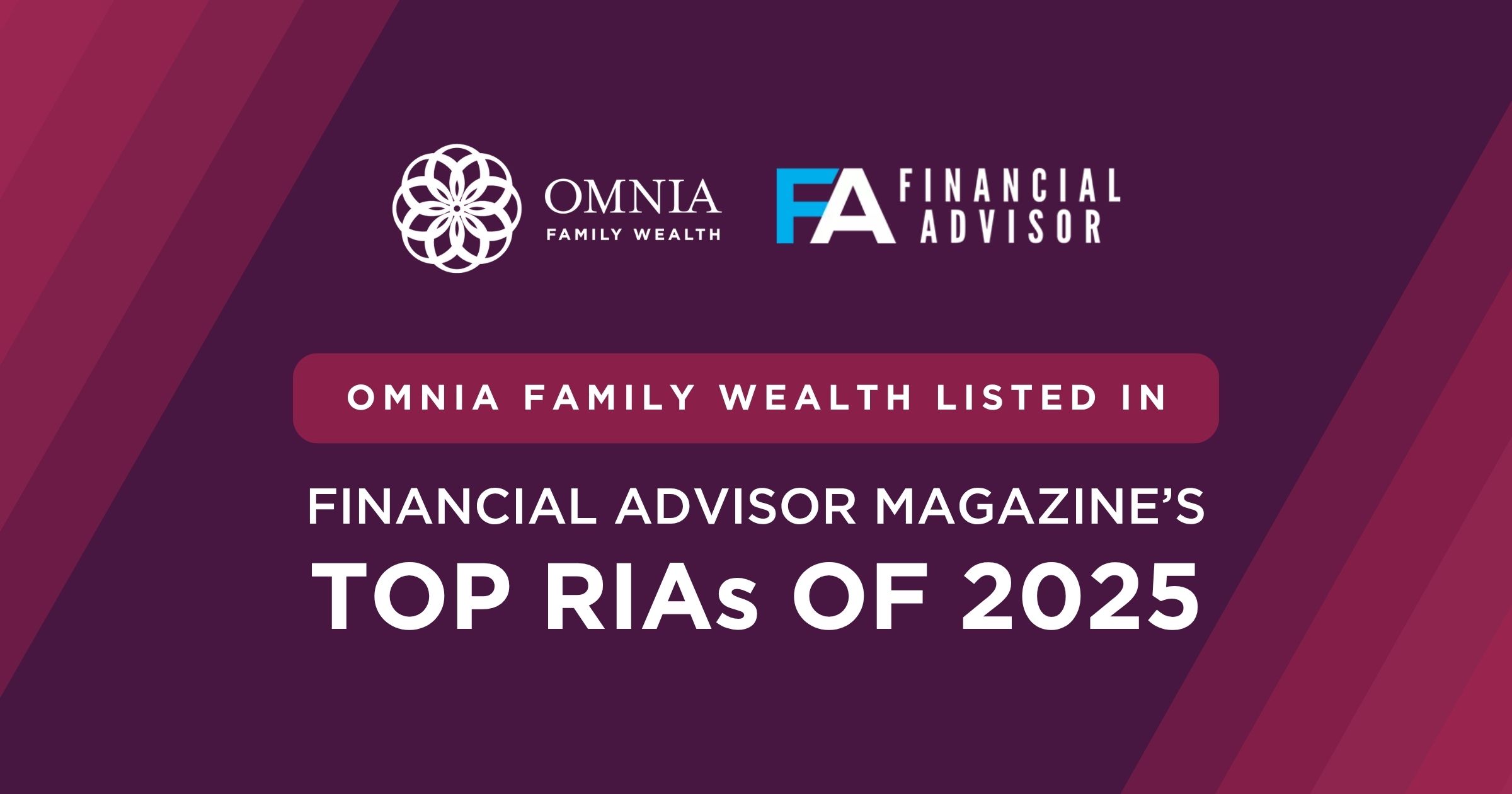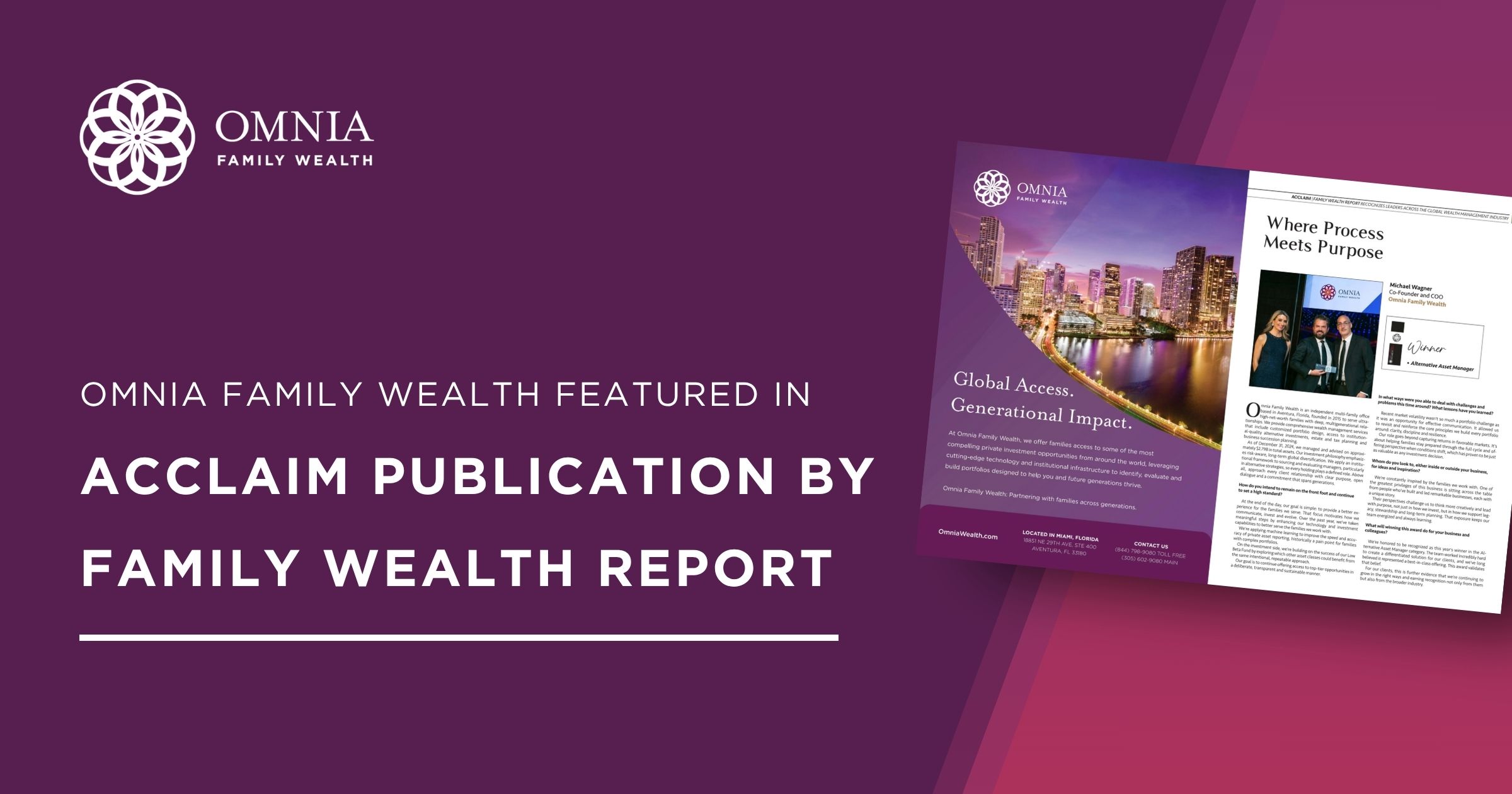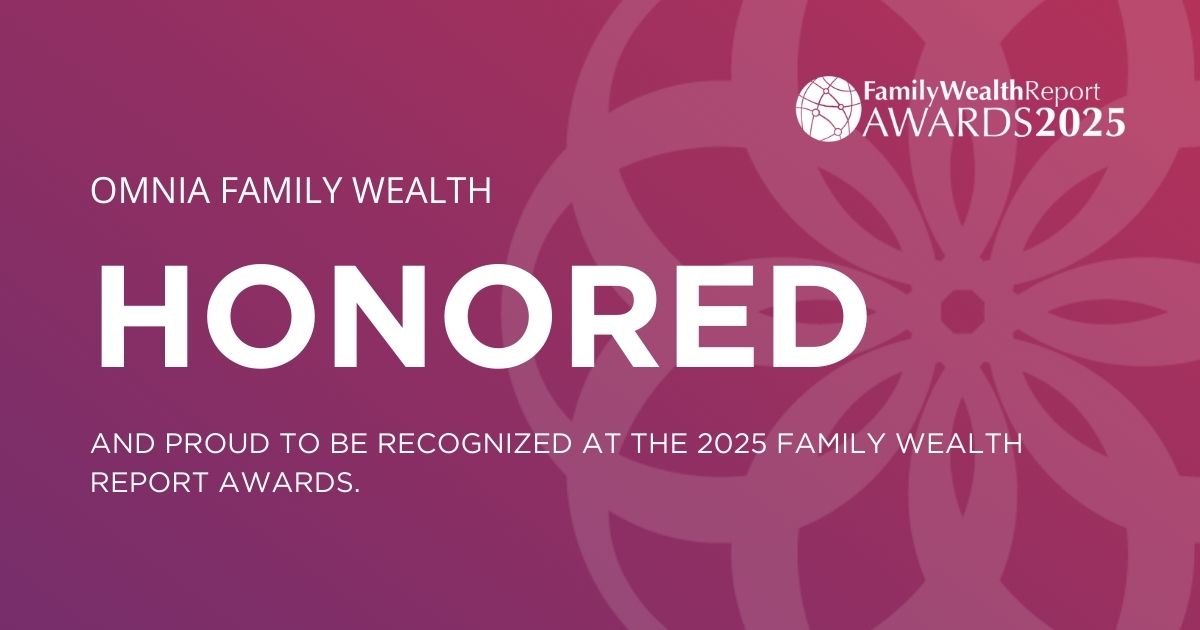
Investing Amid Stagflation: US Wealth Managers’ Perspectives
Family Wealth Report recently turned to Michael Wagner, co-founder at Omnia Family Wealth, for his views on the current market conditions and the risk of “stagflation” – rising inflation and a shrinking economy.
The publication reported that recent official US data showed that gross domestic product in the first quarter contracted by an annualized 1.4 percent. In March, US consumer price inflation came in at 8.5 percent from a year ago.
Wagner told Family Wealth Report that he believes high net worth individuals are generally prepared for this uncertain and volatile environment.
“Those that have the benefit of experience in markets are very familiar with the multi-decade cycles exhibited by inflation and interest rates. Many have speculated for a decade or more that we would see a return to a rising interest rate environment. The prolonged uptick in inflation that we’re seeing may have come as more of a surprise, though there were some red and yellow flags as the pandemic set in,” Wagner said.
On the other hand, Wagner’s bigger concern is the less-experienced investors, who have done well over the past five to 10 years and may feel a sense of comfort.
“Years of positive returns breeds comfort, and I fear an over-allocation to these hyped-up sectors. History has shown that when a speculative market collapses, it is often the least-informed left holding the bag. Wealth can be built through concentration but is kept through diversification,” he said.
Wagner explained that high-quality bonds have, in the past, been an important ballast in portfolios, shielding capital from the impact of a sharp fall in equities. But after a decade of thin yields, bond markets don’t provide much cover.
“This is the biggest challenge in allocating capital today. Traditional fixed income is more likely to act as a millstone than a ballast in a rising rate environment. At the very least, look for floating-rate bond exposure if you must stay liquid. We have increasingly looked to low-beta hedge funds and private debt to provide some portfolio stability in times of change and crisis,” Wagner told Family Wealth Report.
Wagner also explained the benefits of an all-cap indexed approach.
“When it comes to equity investing, especially in the US markets, we tend to advocate for an all-cap indexed approach. Broadly speaking, we’re seeing a return of volatility to the equity market. The firms that most consumers are familiar with (and likely own in their trading portfolios) have expanded beyond the GEs and P&Gs to your FAANGs. These names are widely held and easily pulled levers for individual investors looking to de-risk. If you look at the trailing three-, five-, or 10-year returns for the tech sector, returns are still beyond historical averages,” Wagner said.
As always, please do not hesitate to contact us with any questions. We are available via email or phone at (305) 602-9080.
To read the full article in Family Wealth Report, click here.

